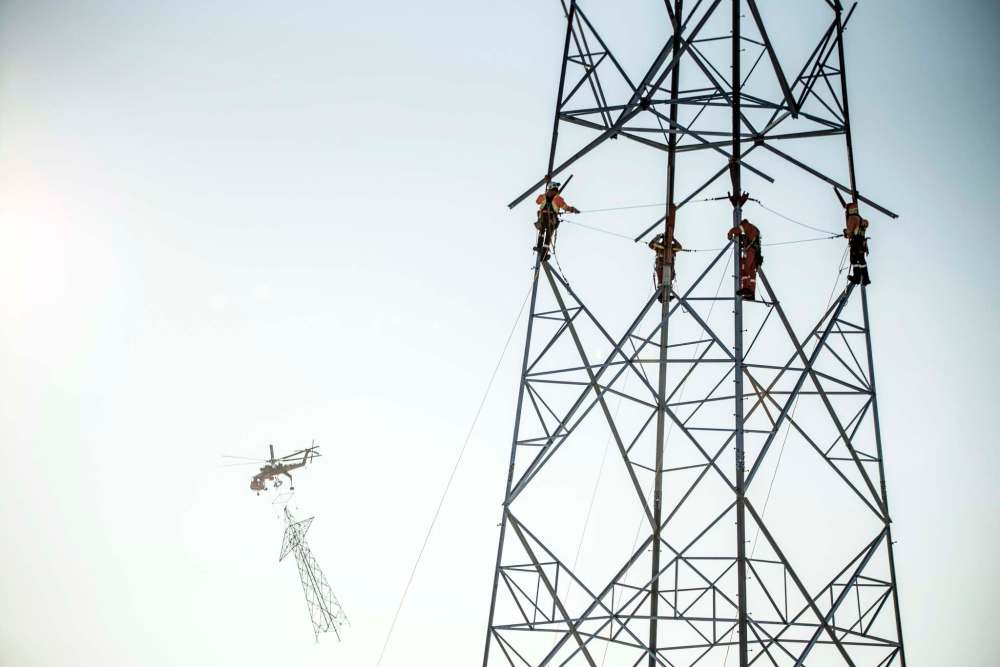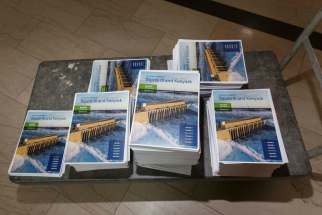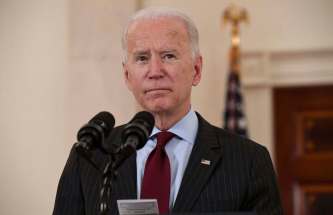Old news good news for Tories Manitoba Hydro mega-projects report retraces NDP's costly steps, offering political value but not much else
Read this article for free:
or
Already have an account? Log in here »
To continue reading, please subscribe:
Monthly Digital Subscription
$0 for the first 4 weeks*
- Enjoy unlimited reading on winnipegfreepress.com
- Read the E-Edition, our digital replica newspaper
- Access News Break, our award-winning app
- Play interactive puzzles
*No charge for 4 weeks then price increases to the regular rate of $19.00 plus GST every four weeks. Offer available to new and qualified returning subscribers only. Cancel any time.
Monthly Digital Subscription
$4.75/week*
- Enjoy unlimited reading on winnipegfreepress.com
- Read the E-Edition, our digital replica newspaper
- Access News Break, our award-winning app
- Play interactive puzzles
*Billed as $19 plus GST every four weeks. Cancel any time.
To continue reading, please subscribe:
Add Free Press access to your Brandon Sun subscription for only an additional
$1 for the first 4 weeks*
*Your next subscription payment will increase by $1.00 and you will be charged $16.99 plus GST for four weeks. After four weeks, your payment will increase to $23.99 plus GST every four weeks.
Read unlimited articles for free today:
or
Already have an account? Log in here »
Hey there, time traveller!
This article was published 26/02/2021 (1745 days ago), so information in it may no longer be current.
Former Saskatchewan premier Brad Wall’s new report on two controversial Manitoba Hydro mega-projects is mostly a rehash of an old political battle; it shed little, if any, new light on what Manitobans already knew.
The report, released Friday, is largely a synopsis of previous reports, including a 2018 probe commissioned by the Public Utilities Board.
Wall said cost overruns for the construction of the Keeyask generating station were driven by several factors, including “cost reimbursable” contracts (which left Hydro with all the risk), poor oversight and a failure to explore alternative construction models. The focus of the project — to exploit U.S. electricity markets — was not properly communicated to the public, nor based on a sound business plan. Manitobans became “involuntary venture capitalists” and were left with billions in Hydro debt after electricity markets south of the border dried up.
The Bipole III transmission line was originally supposed to be built on the shorter, less-expensive east side of Lake Winnipeg. However, the former NDP government intervened and for reasons that were not supported by evidence, switched it to the longer, more expensive side of the lake.
The result: Manitoba Hydro has taken on crushing levels of debt, severely eroding its bottom line. Government should improve its financial oversight of all Crown corporations, the review found.
That’s the gist of Wall’s report; there’s nothing really new to it.

Wall acknowledged during a virtual news conference his “commission” drew mostly from past consulting reports on Keeyask and Bipole III, all of which were widely reported. In addition, he and his staff interviewed almost 70 people, none of whom are named in the report. Wall said he was able to glean more from Hydro staff and others by offering them anonymity. They also reviewed government documents, including records of cabinet meetings and other internal correspondence. They interviewed former Manitoba premier Gary Doer, which must have been interesting. However, neither that, nor any of Wall’s other undertakings, appear to have added much to the historical record.
What it did do is provide Manitoba Tories with additional ammunition against their political opponents. It’s no secret the former NDP government was a poor steward of the provincial treasury. The Keeyask and Bipole fiascos form part of that legacy.
The Wall Commission will be a useful reference point for Tories in future political debates.
Governments hire like-minded former politicians to pen reports because they know what to expect from them. Wall gave the Pallister government exactly the kind of report it was looking for. It has just the right amount of politically charged language (such as accusing the former NDP government of making decisions based on “ideology”) while still appearing to be politically neutral.
Independent, in that the commission wasn’t micro-managed by government, maybe. But impartial and unbiased? No. Reports written by retired politicians are rarely, if ever, impartial or unbiased.
Wall insisted Friday his commission was “independent and impartial.”
“We’re unbiased in our findings,” he said.
Independent, in that the commission wasn’t micro-managed by government, maybe. But impartial and unbiased? No. Reports written by retired politicians are rarely, if ever, impartial or unbiased.
Wall’s report includes commentary about the importance of using public-private partnerships to build future mega-projects (where private companies share project risk and sometimes take on asset ownership). He also said “socio-economic” objectives should not be part of Hydro business plans.
Those are not impartial observations.
Wall also recommends that Crown corporations should be treated more like government departments so that elected officials can keep closer tabs on them. It was an odd recommendation considering the former NDP government was accused of being too close to Hydro.
None of Wall’s recommendations or recycled findings will affect how Hydro operates. As a public entity, it will be directed by whoever is in government. The best Manitobans can do is elect a government they trust the most to run it.
tom.brodbeck@freepress.mb.ca

Tom has been covering Manitoba politics since the early 1990s and joined the Winnipeg Free Press news team in 2019.
Our newsroom depends on a growing audience of readers to power our journalism. If you are not a paid reader, please consider becoming a subscriber.
Our newsroom depends on its audience of readers to power our journalism. Thank you for your support.










